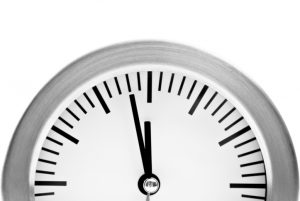
But if you want to live longer and healthier, it just takes two minutes.
Previous research on seniors and sitting reported that even though they may be active, the amount of time they sit is enough to negate the benefits of activity. So the need to get moving more frequently is urgent. Better yet, the newest research suggests that you don’t have to run around or lift weights. Something as simple as walking for two minutes every hour is enough to extend your life.
Two minutes of walking every hour for health benefits
By observing data from the National Health and Nutrition Examination Survey, comparisons were made between low intensity activities like standing and light intensity activities like walking on those who spent the majority of their days sedentary.
What the researchers found was standing for two minutes did not affect lifespan. Rather, walking for two minutes every hour had benefits of extending lifespan by 33 percent. This is great news, especially for seniors, because the widely held belief is that you must take on intense exercise to combat the effects of sitting. Now seniors have a better chance to improve their health without strain or injury.
The researchers suggest that the average individual is awake for 16 hours a day. By walking two minutes every waking hour, they can burn up to 400 calories a week. Additionally, if you add in the extra two-minute walk on top of your regular activity, you will have no problem reaching the weekly recommended amounts of activity and calories burned – 2.5 hours and 600 calories.
If you’re looking to live long and healthy, less can mean more and these findings should be used to encourage everyone to increase their activity levels.
Taking steps to improve your life
Previous research, published in the Journal of Physical Activity and Health, on seniors and activity level revealed about 94 percent of senior men do not meet the requirements of activity. This study also noted that those who sat longer throughout the day were more likely to report disability – defined as having difficulty performing tasks like dressing or getting out of bed.
Among the female participants in the study, for every additional hour they sat their disability rose 50 percent. This study, in comparison with the new one, notes that for those who are disabled even limiting the amount of time they sit can still offer some improvement.
So whether you are able to walk or not, by limiting the amount of hours you’re remaining seated can work toward extending your life.
If you’re looking for some feel-good advice then to improve your life, it only takes two minutes an hour to feel better and live longer.
Related Reading:
Sitting like this is bad for your heart
You eat fairly healthy, you exercise and you even get ample amount of sleep most nights. But chances are that you’ve got a daily habit that isn’t doing your body any favors – and you don’t even know it. Are you sitting down for this? Crossing your legs is hurting your heart.
New study reveals older women are sitting longer
We’ve heard about the detrimental effects lack of exercise can have on our health. Not just tighter pants and low energy, but serious health risks. A 2012 study from the UK has estimated that lack of exercise in adults has contributed to the majority of cases of heart disease and colon cancer.